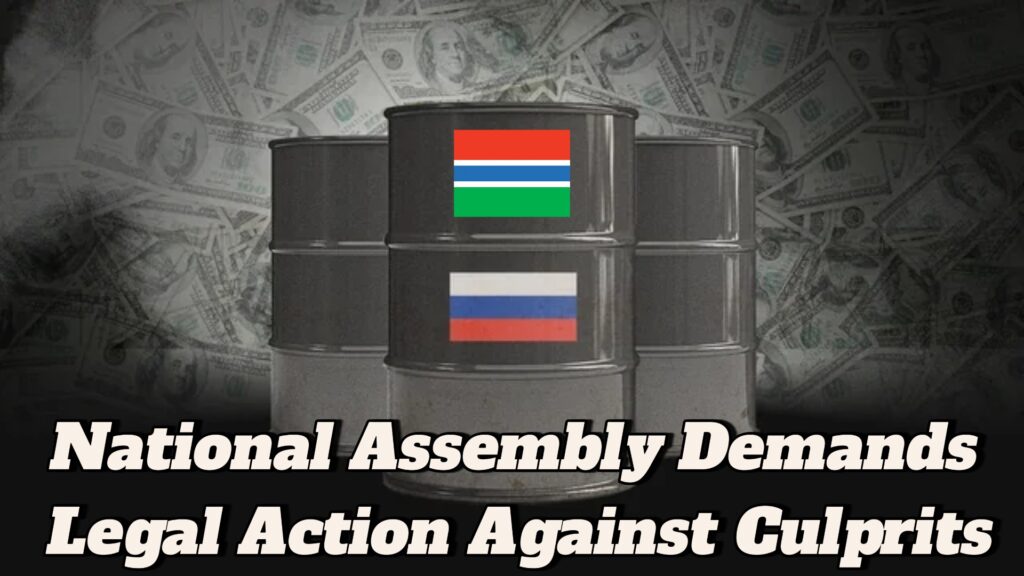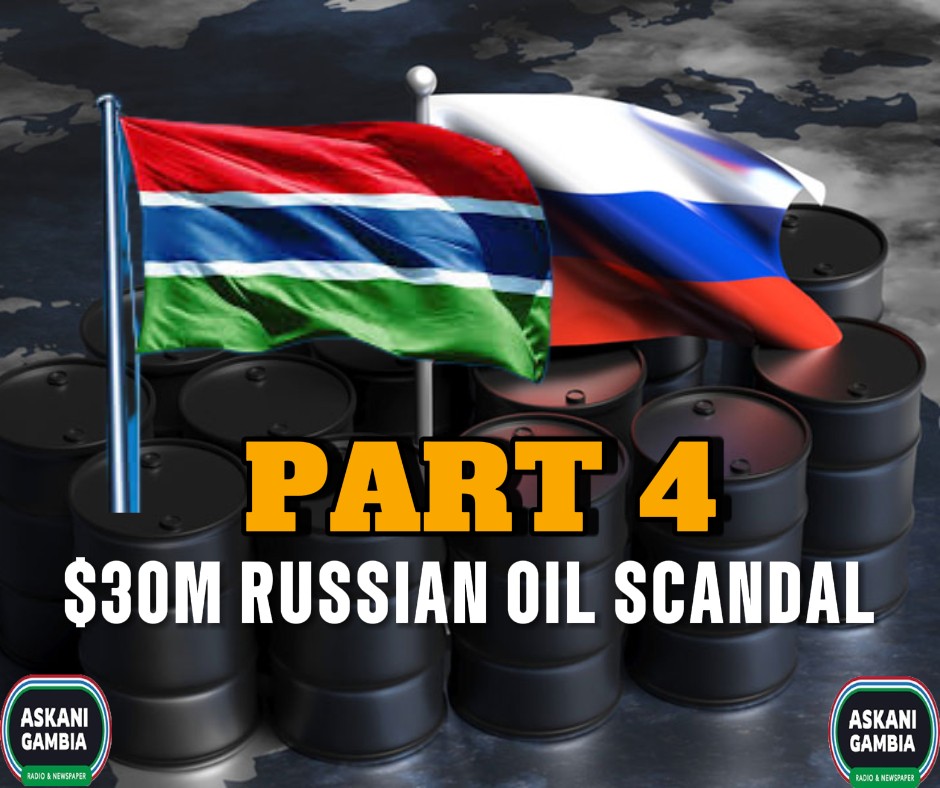
(The Fuel Files Series – FPAC–PEC Petroleum Inquiry)
Every scandal has a trigger. In this one, it wasn’t an overnight theft but a policy.
A short letter from the Ministry of Petroleum and Energy (MoPE), signed and circulated in late 2021, authorised “re-export petroleum operations” through Gam Petroleum.
The idea was simple: foreign traders could import fuel, store it temporarily in Gambian tanks, and then re-export it to neighbouring countries. The goal was to boost storage use, earn handling fees, and create a “West African fuel hub.”
But the execution turned a noble idea into a national loss machine.
How the Re-Export Policy Worked on Paper
- Foreign trader brings fuel cargo under “re-export status.”
- Because it’s not meant for Gambian consumption, the fuel enters tax-free, with no import duty, no excise.
- Fuel is stored at Gam Petroleum tanks, under PURA oversight.
![]() Trader then exports it onward (e.g., to Mali, etc.)
Trader then exports it onward (e.g., to Mali, etc.)
In theory, no local sale, no tax.
In practice, most cargoes never leave the country.
What Went Wrong (and Who Benefited)
FPAC–PEC found that under this policy, unlicensed foreign traders, mainly Apogee FZC (Dubai), Creed Energy (UK), and Ultimate Beige Logistics (Ghana), used the re-export system to import tax-free fuel and sell it locally.
Gam Petroleum officials went along, and GRA never caught it.
The result was massive revenue losses and an illegal parallel market.
The inquiry called this “systemic negligence,” not an isolated error.
“The Ministry’s re-export authorisation lacked a regulatory backbone. It was an open gate that invited abuse.” FPAC–PEC Report, 2025
How Much Did The Gambia Lose?
While the report doesn’t attach one total loss figure, it identifies repeated tax-exempt sales, with duty waivers and unpaid excise charges estimated to cost tens of millions of dalasis per month.
To put it in context:
If half of the recorded re-export cargoes (worth roughly $30 million) were sold domestically without taxes, that’s over D1.8 billion in forgone revenue.
That’s almost the entire annual development budget for Health in 2020, which was D2.013B.
Who Signed and Who Supervised
• The Ministry of Petroleum and Energy (MoPE): Issued the re-export authorisation.
• PURA: Failed to license the traders or enforce export tracking.
• GRA: Did not apply bonded-warehouse or customs-exit verification.
• Gam Petroleum: Provided storage and release without verifying destinations.
• Access Bank Gambia: Processed millions in transactions for unlicensed firms without red flags.
Each agency had a gate to guard. All opened it.
FPAC–PEC’s Direct Findings
- The re-export policy was “implemented without Cabinet approval, legislative basis, or cost-benefit assessment.”
- There was “no evidence of actual export tracking” Trucks or tankers were never recorded to have border exits.
- Traders like Apogee FZC and Creed Energy “sold fuel within The Gambia while declared as re-export.”
- PURA and GRA “failed to exercise regulatory functions” and should face sanctions.
- MoPE “bears direct responsibility” for authorising the scheme without control measures.
The Legal Breach
The Public Finance Act requires all revenue-impacting measures (like tax exemptions or re-exports) to have Cabinet and parliamentary approval.
None was sought.
By law, this makes the entire policy ultra vires, beyond authority.
The Committee’s legal counsel noted:
“Re-export policy implementation without fiscal approval constitutes an unauthorised waiver of revenue, in breach of Section 152 of the Constitution.”
The Human Impact
While foreign traders profited, Gambians paid record-high fuel prices.
OMCs struggled to access supplies because unlicensed traders dominated the tanks.
Hospitals ran out of generator fuel. Citizens, the farmers couldn’t buy diesel at reasonable prices.
Every “re-export” litre sold locally without tax made the burden heavier on those who pay honestly.
The Way Forward (as proposed by FPAC–PEC)
- Immediate suspension of all re-export operations.
- Full forensic audit of all tax-exempt imports since 2021.
- Public publication of all MoPE policy directives related to petroleum.
- Joint monitoring by PURA, GRA, and the National Audit Office for every import/export transaction.
- Reversal of any unauthorised waivers and recovery of unpaid taxes.
- Criminal referrals for any official who signed or enabled the illegal re-export practice.
Why Citizens Must Care
Policy is not paperwork, it’s power.
When a few signatures can turn the nation’s fuel into offshore cash, that’s not policy, that’s capture.
If the government can open the re-export gate without Parliament’s blessing, what stops another ministry from doing the same with mining, timber, or fisheries tomorrow?
The People’s Questions for FPAC
- Who drafted the 2021 re-export policy?
- Which official signed it?
- What legal advice did MoPE receive before approving it?
- How many cargoes came under “re-export” from 2021 to 2023?
- How much duty/excise tax was waived?
- Why did PURA and GRA fail to verify actual exports?
- Were Cabinet or Parliament ever informed?
Until those answers reach the public record, this “policy” remains one of the costliest letters in Gambian history.
Moral Bottom Line
The re-export policy didn’t just cost money; it cost trust.
It proved that even one ministerial directive, unchecked, can rewrite the rules for the few and rob the many.
Policies must never again be drafted in silence or executed without Parliament. Because when oversight sleeps, foreign traders eat, and citizens pay.
By Jallow Modou, Washington D.C., USA – Financial Analyst
Making the Petroleum Inquiry Speak for the People

